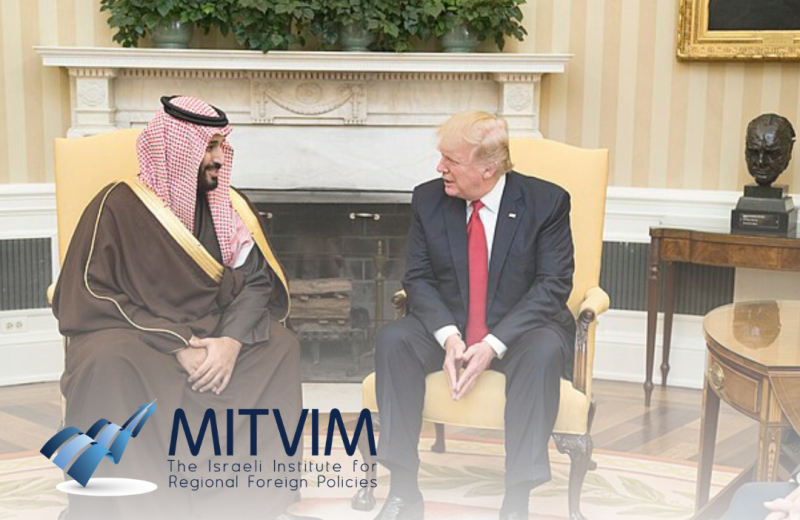 Op-eds
/ Israel and the Middle East
Op-eds
/ Israel and the Middle East
Throughout the Middle East, with the exception of Iran and its proxies, there was a collective sigh of relief at the reelection of Donald Trump as president of the United States. Given the choice between a Democratic administration led by Kamala Harris and a second Trump term, many in the region favored the latter, based on prior experience with Trump and his statements since leaving office.
For the region’s autocratic regimes – again, with the exception of Iran and its proxies – a Trump administration is preferable because, unlike the Democrats, he does not view human rights as an obstacle to maintaining relations. Leaders such as Barack Obama, Hillary Clinton, and Joe Biden, at various points, balanced their policies not only with national interests but also with liberal values.
While they did not expect these regimes to transform into democracies overnight, especially after the results of the Arab Spring, they promoted a spectrum of more liberal approaches toward minorities and opposition groups, as seen, for example, in Jordan.
Currently, no fewer than 10 Middle Eastern states rank in the bottom 20 of the 2024 Global Index of Freedom and Democracy, with another seven in the next two deciles. The trend is unmistakable.
Egyptian president Abdel Fattah al-Sisi was among the first leaders to congratulate Trump. Despite his distaste for Trump’s 2019 nickname “my favorite dictator,” he benefited from Trump’s practical support, including sustained annual aid with no conditions or restrictions related to domestic policy, and a 2017 visit to Washington.
Sisi also hopes Trump will assist in securing additional loans from the International Monetary Fund and World Bank, especially as Egypt faces economic strain due to war-related declines in Suez Canal traffic and Sinai tourism revenues.
Morocco has similarly extended its congratulations to Trump, who became the first US president to recognize Moroccan sovereignty over Western Sahara – an acknowledgment exchanged for Morocco’s normalization of relations with Israel.
In the Gulf, Arab states are also pleased by Trump’s return. His first foreign trip in 2017 was to Saudi Arabia, where he signed over $100 billion in deals, though it remains unclear how fully these were realized.
More significantly, Trump’s past firm stance on Iran aligns well with Saudi interests. Although Riyadh struggled with the administration’s lack of response to the 2019 Houthi drone attack on the Aramco oil fields, Trump’s position is still viewed as more assertive than that of the Democrats.
Saudis continue to hope for normalization with Israel
The Saudis continue to hope for normalization with Israel. Trump, along with his son-in-law Jared Kushner, laid much of the groundwork for the 2020 Abraham Accords with the United Arab Emirates, Bahrain, Morocco, and Sudan, leading many to believe his administration could further this process.
However, the cost of normalization for Saudi Arabia has risen since the Israel-Hamas War began: they now seek the establishment of a viable Palestinian entity, if not an outright state – something Israel under Prime Minister Benjamin Netanyahu is unlikely to offer. The UAE and Bahrain would also welcome such steps, and both, along with Egypt, remain supportive of Trump.
Netanyahu has also expressed enthusiastic support for Trump’s return, calling it “the greatest comeback in history.” Israel, often regarded as the region’s only democracy, echoes the reaction of its autocratic neighbors, perhaps for similar reasons.
Conversely, Iran and its allies are apprehensive about Trump’s return. Trump’s 2018 withdrawal from the nuclear agreement, his authorization of the strike that killed Quds Force commander Qasem Soleimani, and his generally firm stance against Tehran are still fresh in their minds. Supreme Leader Ali Khamenei’s greatest fear is that Trump might grant Israel the green light to target Iran’s nuclear facilities – a stance the Biden administration has avoided.
All these expectations, hopes, and fears are based on Trump’s record from his first term. Now, without the pressure of reelection and with a strong influence over both houses of Congress, a second term could diverge significantly from the first.
Two main factors may drive this shift: a commitment to addressing America’s domestic issues and reducing US involvement abroad, as Trump pledged during his campaign, and a desire to leave behind a positive legacy to counter his divisive public image.
Ultimately, Trump’s actions are often unpredictable, making it challenging to foresee his course with certainty. The most sensible conclusion, then, is to “expect the unexpected.”


